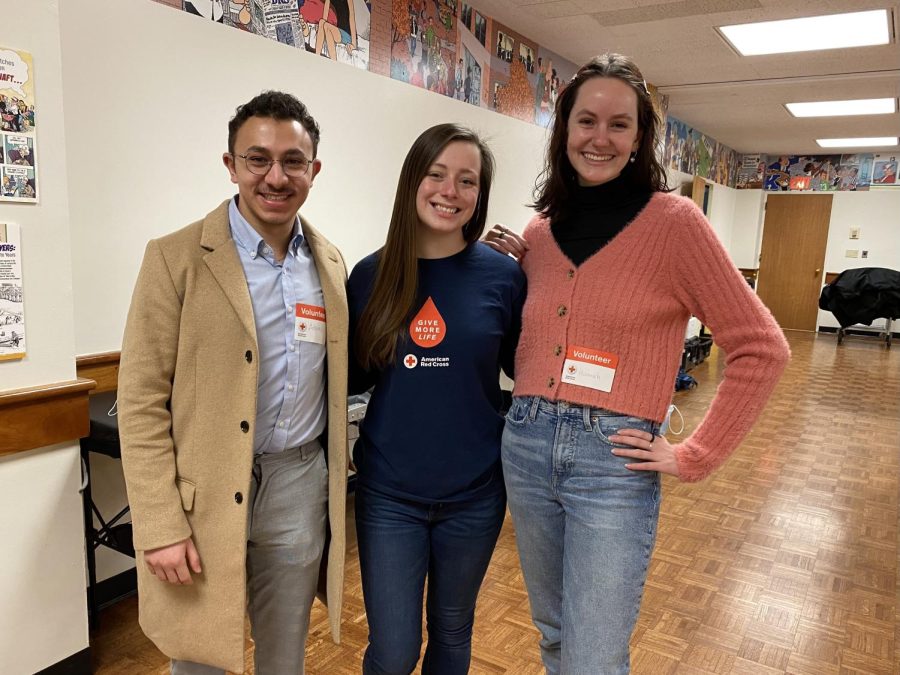Red Cross Club works to increase national blood supply
(From left to right) ARCC members senior chemistry major Ahmed Barghout, senior nursing major Lexie Jones and junior psychology major Hannah Johnson volunteering at the blood drive Feb. 2.
February 8, 2022
In the last month, roughly 7,000 donors were lost at Kent State due to the pandemic and snowstorms, according to American Red Cross Club President Lexie Jones, a senior nursing major. Kent is not the only place to see a decrease in donations, as a national blood shortage was announced last month.
In response to the shortage, ARCC has held three blood drives already this semester.
“When the pandemic first started in 2020, we had to cancel our drives on campus,” Jones said. “We were doing two to three blood drives a month, and now it’s been one per month ever since the pandemic.”
Bob Howard, the president of the Portage County Board of Health, said prior to the pandemic, blood supply was always a background thought.
“Blood drives were something like keeping the place clean; we created a set of expectations, hired people to manage that process, and it became something that was just built into the system,” Howard said.
Kent State’s large population of students creates a higher demand for medical resources like blood.
“People in the age range of 18-25 are more likely to die from an accident,” said public health professor Tina Bhargava. “Universities need to be attentive to the health demands they are making on the community.”
While many students are interested in donating, the FDA requirements can be a roadblock.
“A majority of our donor population are women, and so they face height and weight requirements. Females a lot of the time get deferred for low iron levels,” said Jones. “There are a lot of people interested in donating, but they end up being deferred.”
Time also prevents many college students from donating.
“I think the most common reason is inconvenience, finding the time, going through the process, finding out when and where,” Bhargava said, “Especially now, people aren’t used to showing up to a place.”
Approximately 29,000 units of blood are used every day in the U.S, making a steady blood supply a necessity.
The current shortage is affecting Type O +/- and platelets the most, but all blood types are needed, so Howard urges students to donate blood as soon as possible.
“You cannot address a collective problem with an individual solution,” Howard said. “A collective issue can only be responded to by a collective response.”
Donating blood is one of the simplest ways to make a large impact on the community, Jones said.
“You don’t have to have a degree to save three lives,” Jones said.
Blood drives are held in the Student Center Room 310 on the first Wednesday of each month. Students can visit the Red Cross website to check their eligibility and to register.
Madison Goerl is a reporter. Contact her at [email protected].












